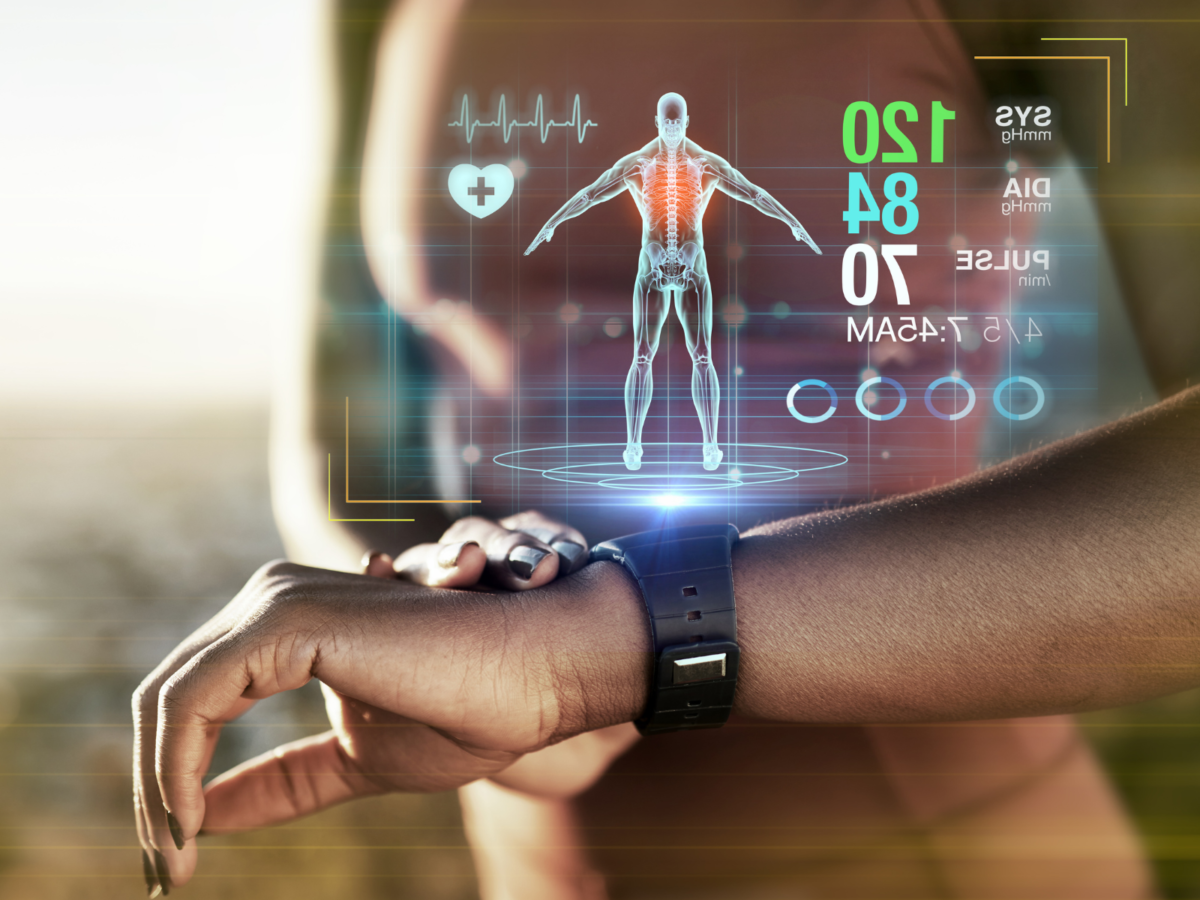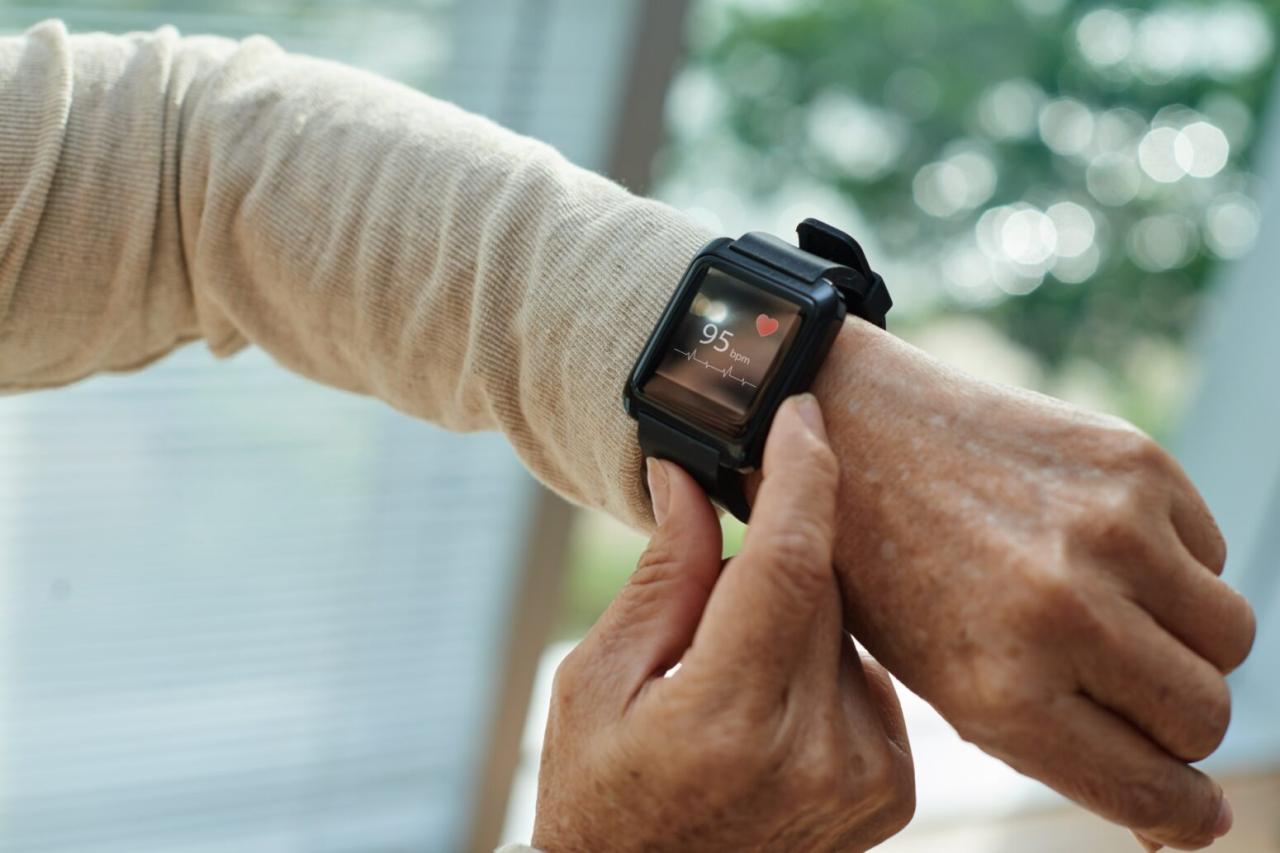Exploring the impact of wearable technology on healthy living, this introduction sets the stage for a fascinating discussion on how these devices are revolutionizing our approach to fitness and well-being.
Providing insights on the different types of wearable devices and their benefits in promoting healthier habits, this overview aims to educate and inspire readers to embrace this technological trend for a healthier lifestyle.
Introduction to Wearable Tech in Healthy Living
Wearable technology in the realm of health and fitness refers to devices that can be worn on the body to monitor various health metrics and promote overall well-being. These devices are designed to track activities, heart rate, sleep patterns, and more, providing users with valuable data to improve their health.
Impact of Wearable Tech on Monitoring Health Metrics
- Wearable devices have revolutionized the way individuals monitor their health by providing real-time data on various metrics such as heart rate, steps taken, calories burned, and even stress levels.
- These devices offer users the ability to track their progress over time, set goals, and make informed decisions about their health and fitness routines based on the data collected.
- By having access to this information at their fingertips, individuals can take proactive measures to improve their overall health and well-being, leading to better lifestyle choices and outcomes.
Popularity of Wearable Devices in Promoting Healthy Lifestyles
- Wearable devices have gained immense popularity among individuals looking to lead healthier lifestyles due to their convenience, ease of use, and ability to provide personalized feedback.
- These devices have become a driving force in motivating users to stay active, meet their fitness goals, and adopt healthier habits in their daily lives.
- The integration of wearable tech into various aspects of life, from fitness tracking to sleep monitoring, has made it easier for individuals to make positive changes and stay accountable for their health decisions.
Types of Wearable Tech Devices

Wearable technology has revolutionized the way we monitor our health and wellness. These devices come in various forms and functionalities, each catering to specific needs and preferences of users. Let's explore the different types of wearable tech devices used for health monitoring.
Fitness Trackers
Fitness trackers are designed to monitor physical activity, such as steps taken, distance traveled, and calories burned. These devices often come equipped with heart rate monitors, GPS tracking, and sleep tracking features. Fitness trackers are ideal for individuals looking to track their exercise routines and overall fitness levels.
Smartwatches
Smartwatches are versatile wearable devices that offer a wide range of health monitoring features in addition to their traditional functions like receiving notifications and making calls. These devices can track heart rate, monitor stress levels, analyze sleep patterns, and even provide guided breathing exercises.
Smartwatches are suitable for individuals seeking a multifunctional device that combines style with health monitoring capabilities.
Health Monitoring Wearables
Health monitoring wearables are designed specifically to track various health metrics such as blood pressure, blood oxygen levels, and ECG readings. These devices are often recommended for individuals with specific health conditions or those looking to monitor their health more closely.
Health monitoring wearables provide valuable insights into overall well-being and can alert users to any potential health issues.
Benefits of Wearable Tech in Healthy Living
Wearable technology has revolutionized the way we approach health and fitness, offering numerous benefits for individuals striving to lead a healthier lifestyle. From tracking fitness goals to promoting healthier habits, wearable devices play a crucial role in enhancing overall well-being through real-time data monitoring.
Tracking Fitness Goals
- Wearable tech provides users with the ability to monitor their physical activity, such as steps taken, distance traveled, and calories burned, allowing for a more accurate assessment of progress towards fitness goals.
- By offering detailed insights into daily exercise routines, wearable devices help individuals stay motivated and accountable, leading to increased adherence to fitness plans and ultimately better results.
- Tracking fitness goals through wearable tech also enables users to set achievable targets, measure performance, and adjust their workout intensity or frequency based on real-time data feedback.
Promoting Healthier Habits
- Wearable devices serve as constant reminders to engage in healthy behaviors, such as staying active, drinking enough water, getting an adequate amount of sleep, and managing stress levels effectively.
- Through notifications and alerts, wearable tech encourages users to take breaks, practice mindfulness, and make healthier choices throughout the day, fostering long-term habits that contribute to overall well-being.
- By gamifying health and fitness activities, wearable devices make the process of adopting healthier habits more engaging and enjoyable, turning daily routines into rewarding challenges that promote positive lifestyle changes.
Enhancing Overall Well-being through Real-time Data Monitoring
- Wearable tech enables individuals to monitor key health metrics, such as heart rate, sleep patterns, and stress levels, in real time, providing immediate feedback on their physical and mental well-being.
- By analyzing data collected by wearable devices, users can gain valuable insights into their health trends, identify patterns, and make informed decisions to optimize their lifestyle choices for better health outcomes.
- Real-time data monitoring offered by wearable tech empowers individuals to take control of their health, proactively manage risk factors, and seek timely intervention when needed, leading to improved overall well-being and quality of life.
Challenges and Limitations of Wearable Tech
Wearable technology has brought a significant shift in how we monitor our health and well-being. However, it is essential to understand the challenges and limitations associated with relying on wearable devices for health management.
Privacy Concerns
Privacy is a major concern when it comes to wearable tech collecting and storing personal data. Users may be worried about the security of their information and the potential misuse of sensitive health data. It is crucial for companies to implement robust data protection measures to ensure the privacy of users is maintained.
Accuracy Issues
One of the challenges of wearable tech is the accuracy of the data collected. Factors such as device calibration, sensor accuracy, and placement on the body can impact the reliability of the information provided. Users should be aware of the limitations of these devices and not solely rely on them for medical diagnoses or treatment decisions.
Limitations in Health Monitoring
While wearable devices can track various health metrics, they may not provide a comprehensive picture of an individual's overall health. Certain conditions or health parameters may not be accurately monitored or detected by these devices. It is important for users to consult healthcare professionals for a holistic assessment of their health status.
Future Trends in Wearable Tech for Healthy Living
Wearable technology has already made significant strides in transforming the way we approach health and wellness. Looking ahead, there are several exciting future trends that could further revolutionize healthy living practices.
Integration of Artificial Intelligence and Machine Learning
Artificial intelligence (AI) and machine learning are poised to play a crucial role in the evolution of wearable tech for healthy living. These technologies can analyze vast amounts of data collected from wearable devices to provide personalized insights and recommendations to users.
By leveraging AI and machine learning, wearable devices can offer more accurate health assessments and tailored guidance, ultimately enhancing the overall user experience.
Potential Advancements in Wearable Tech
As technology continues to advance, we can expect to see remarkable developments in wearable devices that could revolutionize healthy living practices. For instance, future wearable tech may incorporate sensors capable of detecting a wider range of health metrics in real-time, providing users with a more comprehensive view of their well-being.
Additionally, advancements in materials science may lead to the creation of more comfortable and discreet wearables, encouraging greater user adoption and long-term engagement.
Enhanced Health Monitoring and Prevention
One key area of focus for future wearable tech is enhanced health monitoring and preventive capabilities. Wearable devices may soon be equipped with advanced sensors that can detect early signs of health issues, allowing users to take proactive measures to prevent potential health complications.
By integrating features that promote continuous monitoring and early intervention, wearable tech could significantly impact disease prevention and overall well-being.
Seamless Integration with Healthcare Systems
Another future trend in wearable tech for healthy living is the seamless integration with healthcare systems. Wearable devices could become key tools for healthcare providers, enabling remote monitoring of patients and facilitating more personalized treatment plans. By fostering greater collaboration between users, healthcare professionals, and technology, wearable tech has the potential to streamline healthcare delivery and improve outcomes for individuals.
Last Recap

In conclusion, wearable tech is not just a trend but a transformative tool for those seeking to improve their health and well-being. As we look towards the future, the possibilities for wearable technology in healthy living are endless, promising a more connected and informed approach to personal wellness.
Question & Answer Hub
How accurate are wearable devices in monitoring health metrics?
Wearable devices have significantly improved in accuracy over the years, providing reliable data for users to track their health metrics effectively.
Can wearable tech devices replace traditional fitness methods?
While wearable devices offer convenience and real-time data, they should be seen as complementary tools rather than complete replacements for traditional fitness methods.
Are there privacy concerns associated with using wearable tech?
Privacy concerns do exist, especially regarding the collection and sharing of personal health data. Users should be cautious and review privacy policies of wearable tech companies.








